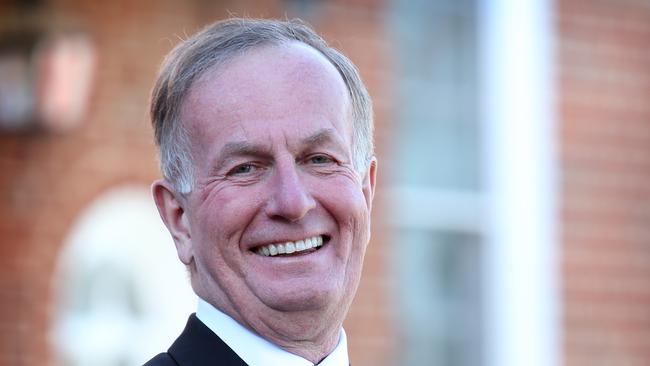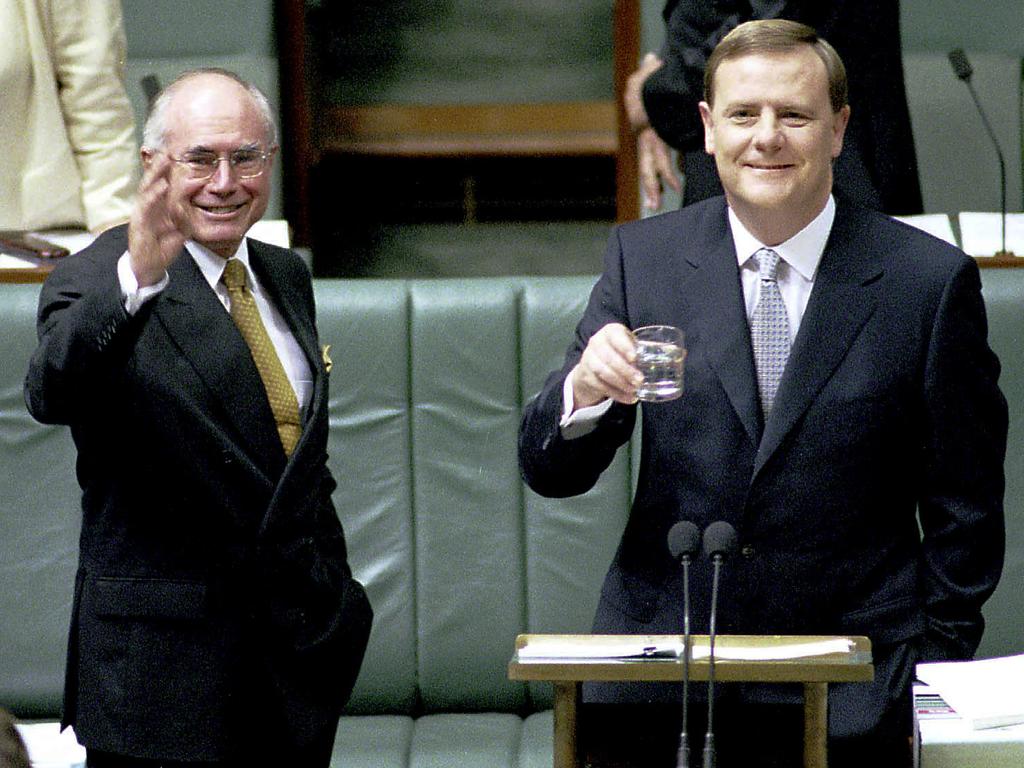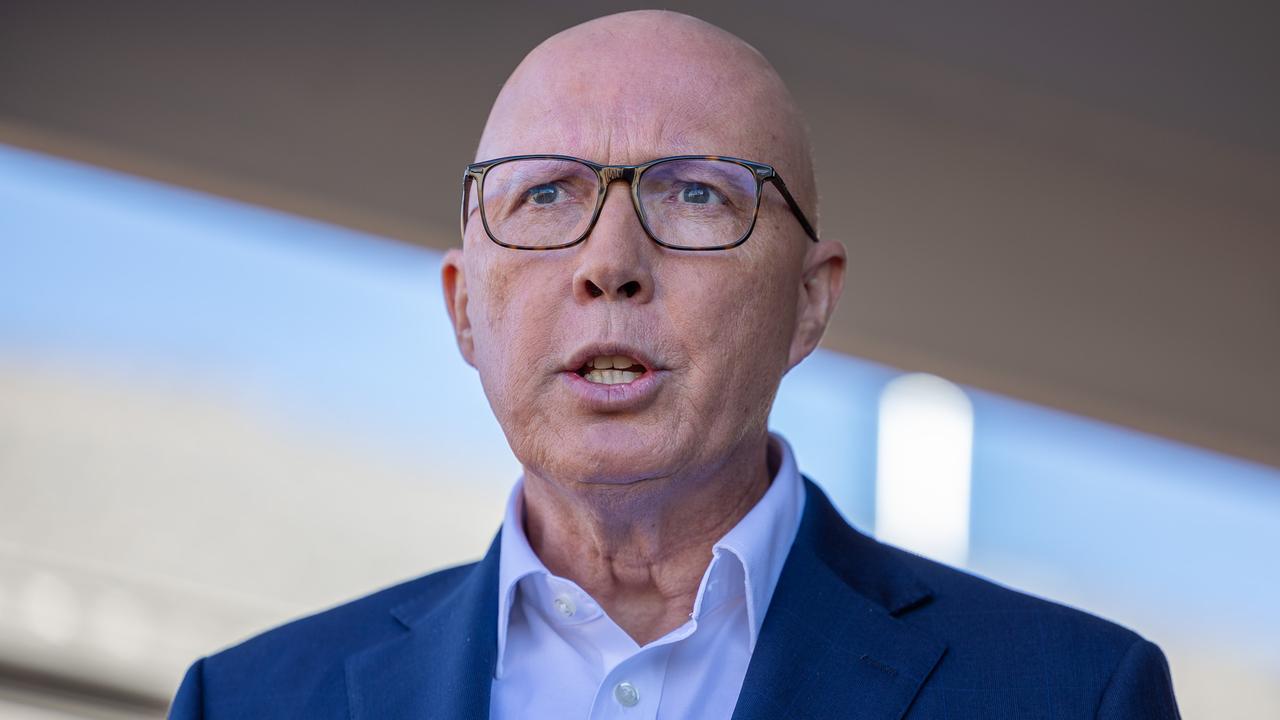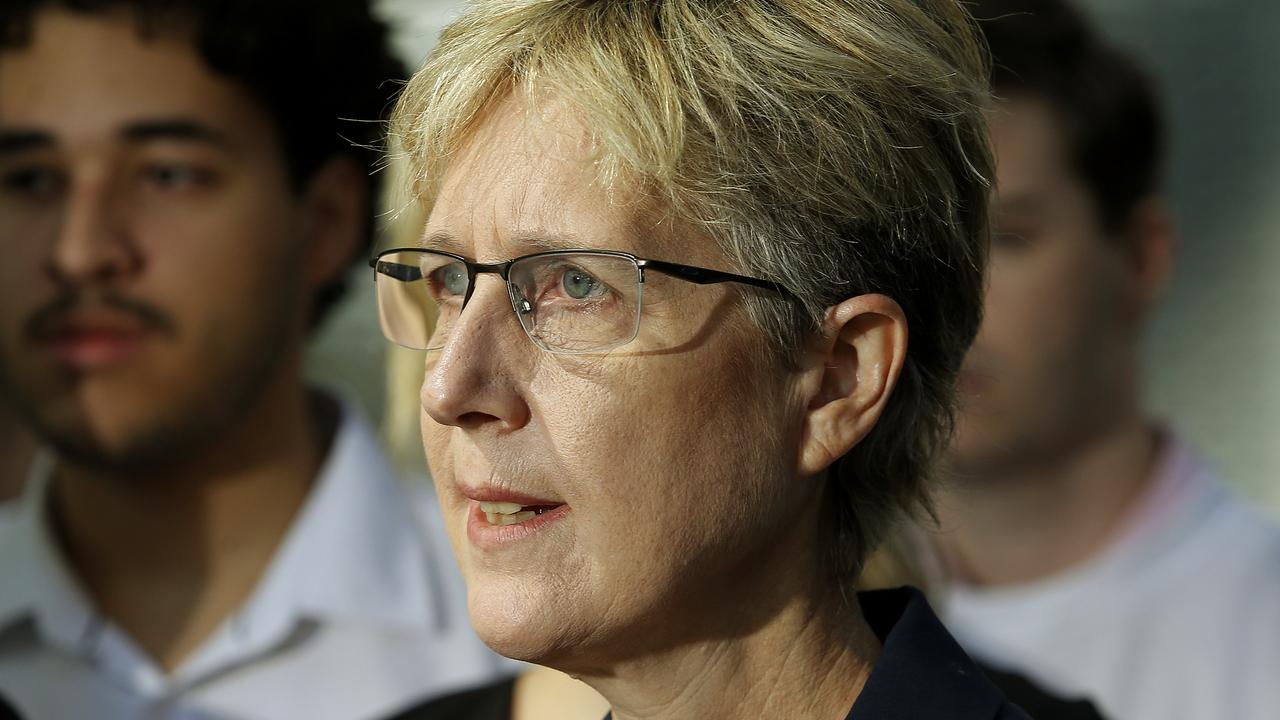US ambassador Arthur Culvahouse takes parting shot at China
The outgoing US ambassador says America, Australia and like-minded democracies need to work together to develop supply chains for crucial goods that don’t rely on China.

Outgoing US ambassador Arthur Culvahouse says America, Australia and like-minded democracies need to work together to develop trusted supply chains for critical goods like minerals, pharmaceuticals and medical equipment that don’t rely on China.
Mr Culvahouse said COVID-19 and “malign” Chinese influence required a determined effort by Five Eyes nations, plus key partners India and Japan, to source economic and national security inputs from friendly countries. In an interview with The Weekend Australian in his final days in the job, the Donald Trump appointee said Australia’s global standing had been enhanced during the COVID crisis, and the nation’s treatment by Beijing had opened the eyes of the world to Chinese coercion.
Mr Culvahouse, who will return to the US before Joe Biden’s January 20 inauguration, also urged Australians to have confidence in the US and the “profound and sacred” Australia-US alliance.
The lifelong Republican said the post-COVID era would require new levels of co-operation and a willingness to pay higher prices to guarantee supplies of critical minerals, pharmaceuticals and medical equipment. “We are going to have to work creatively in almost a Manhattan Project-way to jump-start some supply chains that were captured by China because they were the lowest-cost producer,” he said in a reference to World War II allied effort to develop the atomic bomb.
“These words don’t come naturally out of my mouth, but we’re probably going to have to do a little industrial policy. If you are going to create strategically reliable supply chains, you have to have offtake agreements.”
He said trust and shared values would be the bedrock of future arrangements for the post-COVID economic and security environment. “Part of doing due diligence today is ‘Can we trust them? Do they believe in democracy? Do they believe in the rule of law? Are their people getting a fair shake?” he said.
“I think the Prime Minister, to his credit, has mapped out the blueprint, which is to build a coalition of like-minded, trusted partners … to be the grouping around which, in the post-COVID world, we have defence, economic and humanitarian co-operation.”
Australian rare-earths miner Lynas sealed a much-needed contract earlier this year with the US Defence Department for a proposed processing facility in Texas — the only source of separated heavy rare earths outside China.
But Mr Culvahouse said an even greater collective effort was needed, noting more than 400kg of minerals were required to manufacture a single F-35 stealth fighter jet. “Whether it’s rare earth, PPE or pharmaceuticals, you need strategically reliable supply chains from the mine mouth or the field, to the lab, to the end user,” he said.
He said the US also needed to share more of its cutting-edge technology, streamlining Cold War-era export controls for trusted partners.
As the incoming Biden administration prepares to ramp up US efforts to tackle climate change, Mr Culvahouse said the benefits offered by nuclear power also needed to be considered to deliver energy security while cutting carbon emissions.
He said it was not his place to recommend nuclear power for Australia, but declared “all options need to be on the table”.
“Nuclear power plants are smaller, safer and environmentally have no carbon footprint,” he said. “We need to get cleaner, quicker. But climate change and economic security go hand-in-hand. You can’t deal with them in isolation.”
Mr Culvahouse said Australia — which has been hit by punitive Chinese trade bans on more than $20bn of exports — was “at the frontlines of the great strategic competition of our times”.
He said Australian and US efforts to stand up to Beijing had created “additional space for other democracies in this region to step in and confront malign activity — and that is what is happening”.
The Chinese embassy’s list of 14 “grievances” with the Australian government — including the Huawei ban, new foreign interference laws, and the push for an inquiry into the origins of COVID-19 — had also taught the world about the Chinese Communist Party “in a way we couldn’t have”, Mr Culvahouse said.
“What this really says is if you want to get along with China economically you must be subservient. You must do what we (the CCP) say,” he said.
Now the dominant conversation in Canberra’s diplomatic community was, “How can we stand shoulder-to-shoulder with Australia?”, Mr Culvahouse said.
He said Australia had “gained so much credit in the world’s eyes with the way it had dealt with the COVID pandemic” domestically, and in its global push for an inquiry into the virus’ origins.
Australia had also shown leadership in its vocal opposition to human rights infringements in China’s Xinjiang region and Hong Kong, and in calling out Chinese claims in the South China Sea to be illegal, he said.
“Australia has a lot of capacity for leadership, and when Australia speaks, people in this region really listen, and people throughout the world listen,” he said.
Mr Culvahouse, whose own appointment as ambassador came after a 2½-year vacancy in the post, said he hoped Australia would not have long to wait to learn who his successor would be.
Despite Mr Trump’s ongoing refusal to acknowledge Mr Biden as the president-elect, and four years of America First disruption to the global order, the ambassador said he remained an optimist and an “American exceptionalist”. “I’m proud of my country. We are a big, messy democracy, but we have self-correcting mechanisms that have worked for almost 250 years,” he said.
“The election of President Trump was a direct response to the fact that the elite in our country had ignored a swath of our population. And that was a significant self-correction.
“But I think we’re a force for good. Our values are strong. And our commitment to Australia is solemn, profound and sacred, and there is widespread bipartisan agreement on that.
“The next couple of years, just like the past two years have been, will be an incredibly important chapter in the alliance. We’re going to go through some tough times. But I’m equally confident the best days of the alliance are in front of us.”








To join the conversation, please log in. Don't have an account? Register
Join the conversation, you are commenting as Logout